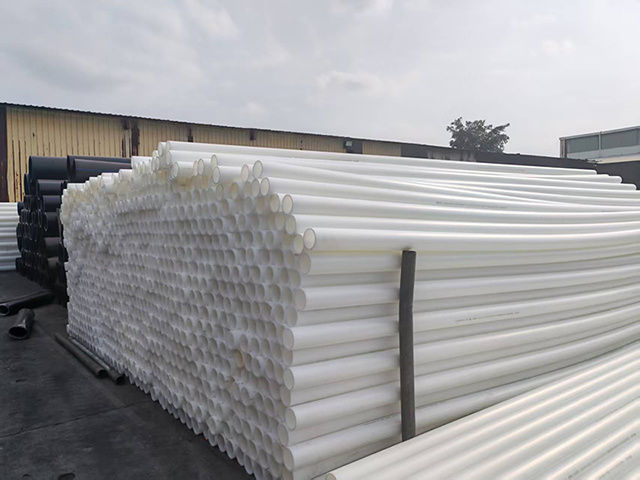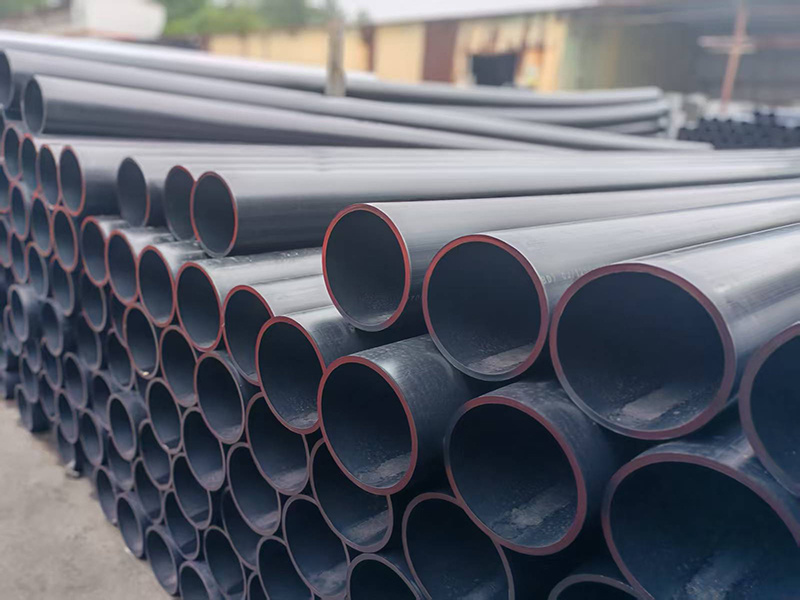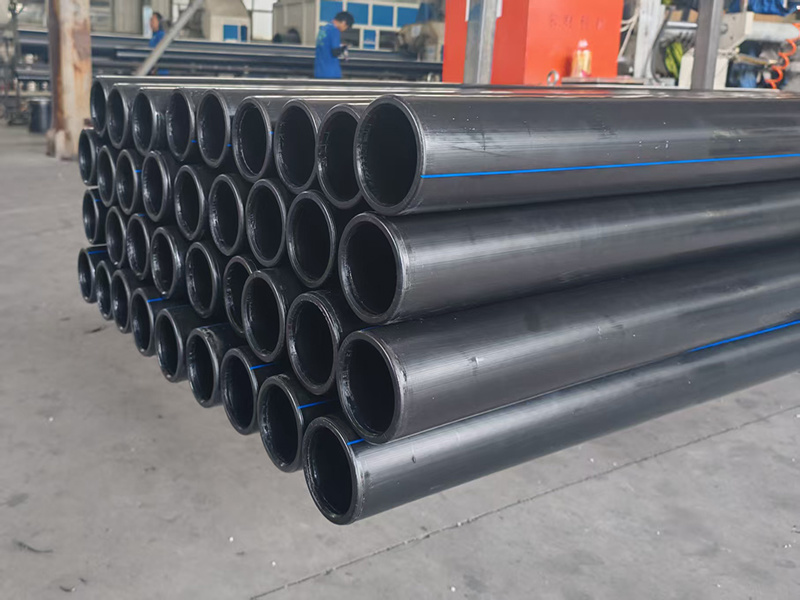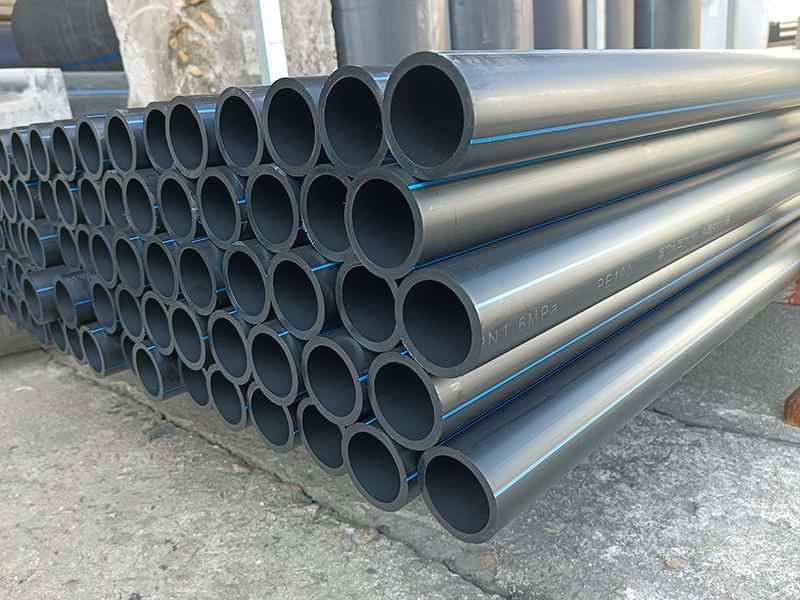
Share to
HDPE high-density polyethylene reinforced spiral B-type pipe
Due to the smooth inner wall surface of HDPE pipes, the roughness coefficient n=0.009. When calculating the flow rate using the Manning formula, under the same pipe diameter conditions, its flow rate is 30% larger than that of reinforced concrete pipes. This means that when transporting the same amount of sewage, the diameter of HDPE pipes can be reduced by 1 to 2 pipe grades compared to reinforced concrete pipes.
Product Category
Keyword
- Product Description
-
Product Features
Excellent Hydraulic Conditions Because the inner wall surface of HDPE pipes is smooth, the pipe's roughness coefficient n=0.009. When calculating the flow rate using the Manning formula, under the same pipe diameter conditions, its flow rate is 30% larger than that of reinforced concrete pipes. This means that when transporting the same amount of sewage, the diameter of HDPE pipes can be reduced by 1 to 2 pipe grades compared to reinforced concrete pipes. Good Sealing HDPE spiral reinforced pipes use a socket-type electrofusion connection. The two ends of the pipe are processed into sockets and spigots during production, and electrofusion wires are embedded in the socket end. When connecting the pipes, only power needs to be connected to complete the welding, achieving zero leakage. Wide Range of Pipe Diameters The currently producible diameter range of HDPE pipes is DN300~DN4000, which is significantly larger than that of PVC pipes. Corrosion Resistant and Anti-aging The raw material of HDPE pipes is polyethylene, a high-molecular component, which can effectively resist corrosion from acids, alkalis, salts, and untreated industrial wastewater and domestic sewage. At the same time, its anti-aging performance is also better than that of PVC pipes. Good Flexibility HDPE pipes are flexible pipes with good elongation properties, capable of adapting to construction under poor foundation conditions and foundation settlement. Especially in coastal areas with poor foundations and severe settlement, this type of pipe material can significantly adapt to uneven settlement. Lightweight and Easy Installation HDPE pipes are lightweight, reducing labor intensity and shortening construction time. High Strength and Long Service Life HDPE pipes are made of 100% high-density polyethylene in a hot-melt state, with good integrity, stable chemical properties, high strength, and a long service life of over 50 years. Abrasion Resistant Mortar abrasion tests show that the lifespan of high-density polyethylene (PE) pipes is more than 4 times that of steel pipes. Application Range
Municipal Water Supply and Drainage Used for municipal underground drainage, sewage, rainwater collection, water supply, ventilation, and discharging liquid and gaseous substances into rivers or seas. Water Conservancy Projects Such as long-distance water transmission, farmland irrigation, reservoir dredging, water source pipes, irrigation pipes, and water supply and drainage for hydropower stations. Environmental Protection Projects Suitable for deep-sea sewage discharge, sewage treatment, landfill sewage discharge, and toxic drainage pipes. Petroleum Industry Used for oil and gas pipelines. Coal Industry Used for coal transportation projects and various ventilation systems. Chemical Engineering Used for chemical containers, especially pipelines for transporting corrosive fluids. Power Engineering Used for circulating water pipelines. Road Engineering Used for water culverts and pedestrian crosswalks with large traffic loads such as highways and railways, as well as seepage and drainage pipes for railways, highways, and expressways. Agricultural Engineering Used for irrigation and drainage systems in farmland, orchards, and tea plantations. Other Fields Used for drainage and sewage pipes in large airports, ports, and wharf projects; building rainwater pipes, underground drainage pipes, sewage pipes, ventilation pipes; communication pipes, such as railway and highway communication cables and optical cable protection pipes.
HDPE high-density polyethylene reinforced spiral B-type pipe
Due to the smooth inner wall surface of HDPE pipes, the roughness coefficient n=0.009. When calculating the flow rate using the Manning formula, under the same pipe diameter conditions, its flow rate is 30% larger than that of reinforced concrete pipes. This means that when transporting the same amount of sewage, the diameter of HDPE pipes can be reduced by 1 to 2 pipe grades compared to reinforced concrete pipes.
Still deciding? Get a sample first, contact us!
Product Category
Keyword
Leave a message now
We will contact you within one business day. Please pay attention to your email.

Service hotline:
Service mailbox:

5-year warranty commitment, lifetime technical consultation - Lianhong Pipe Industry, making pipes the most reliable silent partners
HUATAO GROUP
Online message to get application solutions for free
Copyright © 2025 Guangdong Lianhong Pipe Industry Co., Ltd.
Business License









